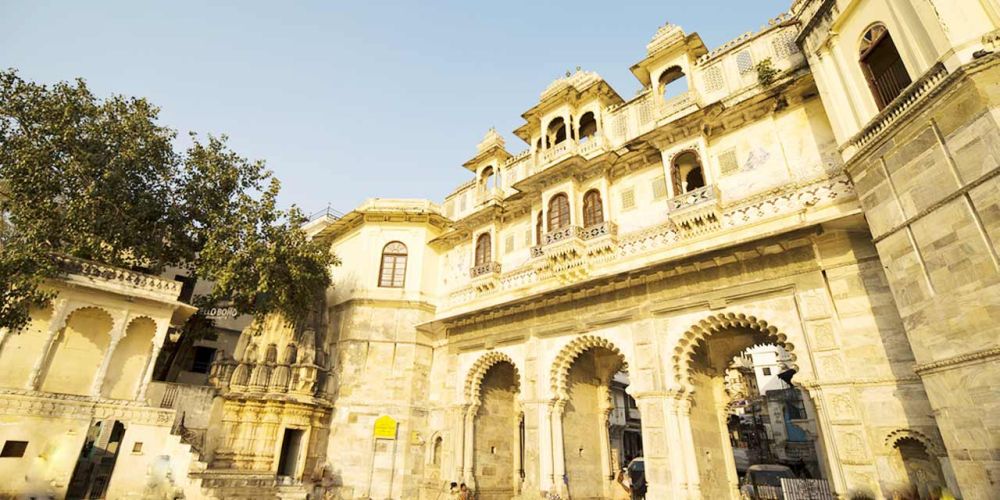

Located at the waterfront of Lake Pichola at Gangori Ghat, Bagore Ki Haveli is an exquisite example of a royal residence in Udaipur, Rajasthan. Built in the late 18th century by the Prime Minister of Mewar, Amir Chand Badwa, the haveli was later inhabited by Maharana Shakti Singh of Bagore, and thus it came to be known as Bagore Ki Haveli. The haveli is an embodiment of the sophisticated taste of Rajasthan's royalty and their luxurious lifestyle.
The history of tourism at Bagore Ki Haveli is relatively recent. For many years, the haveli was left neglected after the royal family moved out. It wasn't until the 1980s that the haveli was handed over to the West Zone Cultural Centre (WZCC), which initiated a meticulous restoration project. The restoration work was a significant step towards preserving the haveli's original splendor, and it was eventually opened to tourists as a museum.
The museum carefully curates the lifestyle of the royals with displays of traditional Rajasthani costumes, modern art, and an impressive collection of Mewar paintings. Tourists can also explore the various chambers within the haveli, which once were the living spaces of the royal family. These unique elements soon found a place in the hearts of history enthusiasts and cultural tourists, marking Bagore Ki Haveli as a staple in Udaipur's tourism history.
Dharohar - a cultural show held every evening at the haveli's Neem Chowk is the latest trend in Bagore Ki Haveli's tourism book. Featuring traditional dance and music of Rajasthan, the show has captivated visitors and significantly contributed to the enrichment of cultural tourism in Udaipur. The haveli is usually thronged in the evenings by visitors eager to engage with the local culture through these performances.
Interactive experiences have also become central to the haveli's tourism appeal. Visitors can indulge in turban tying sessions or craft activities which are not only fun but also give a slice of Rajasthani traditions and practices.
Sustainability in tourism has also gained momentum, with Bagore Ki Haveli focusing on environmentally friendly practices. Efforts are being made by the management to reduce the haveli's carbon footprint, and they encourage tourists to respect and help preserve the historic site.
The impact of Bagore Ki Haveli on Udaipur's tourism industry has been profound. It helps in sustaining the local economy through entry tickets, guided tours, and cultural shows. Moreover, the haveli's picturesque backdrop has made it a favorite for weddings and photoshoots, bringing in additional revenue streams for the local tourism industry.
The restoration and tourism promotion of Bagore Ki Haveli contribute to preserving the historical site for future generations and sustain the narrative of Udaipur's rich heritage and culture.